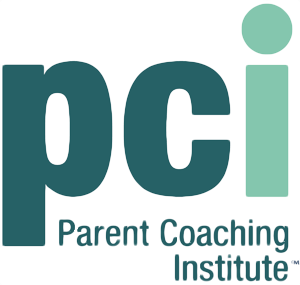
PCI Coaching Helps Parents Stay Informed and Inspired
Founder, Parent Coaching Institute
CEO, Parent Coach International™
Before I developed PCI Parent Coaching, I asked myself three important questions:
How do parents obtain relevant information about how to meet their children’s developmental needs and stay the course within an industry-generated culture that uses mass media and screen technologies to amplify misleading, even dangerous information, that leads them astray so quickly and so completely?
How do parents get accurate information about their children’s real developmental needs with a popular culture that amplifies trivial desires?
How do moms and dads stay inspired to live from their core values and teach their children from their inner wisdom in a society that glorifies consumerism and beatifies things?
Those questions lead to others:
- What are the most effective ways to change human behavior in positive directions?
- How do parents, feeling overwhelmed and devalued, and often hopeless, find the energy to make positive changes?
- How do stressed parents find the will and determination within the complex daily demands of their lives to counter larger, cultural messages and to teach their children to do the same?
- How can parents attend to their children’s real cognitive, emotional, social, and spiritual needs if they don’t know what those needs are?
- How can parents be convinced that those real needs are indeed real and that they and their children will suffer if those needs do not get met during the course of childhood and adolescence?
- How do we help parents have more joy in parenting and stop seeing their children as problems or burdens, which happens so easily when children’s developmental needs do not get met?
- How do we help parents implement what we know from the research are the best parenting practices?
- How do we help parents slow down, spend time with their children and enjoy the “small things” that make children feel loved and appreciated when the industry-generated culture keeps shouting messages that buying for children, that new toys, and the latest gadget are the important things?
- How can parents learn to trust their internal guidance, relying more on their own inner wisdom and less on an industry-generated culture’s notion of what they should do for their children?
In pondering these and other questions and doing extensive research for over three years (2000-2003), I decided that a specific coaching model was the most effective way to proactively address these issues, for two important reasons.
First, we often best examine our perceptions of ourselves and others, our attitudes and behaviors, when in relationship with another person. It seems that the more intimate our relationships, the more opportunities they provide for us to grow in new ways and discover important things about our lives and priorities. Friends, spouses, relatives, a caring involved teacher—we all can name specific individuals in our lives that had a significant impact.
Coaching, over time, allows parents the opportunity of a relationship with a professionally trained coach who walks “shoulder-to-shoulder” with them, looking and reaching in the same direction together. Compassionate understanding; non-judgmental listening, and open curiosity are integral to an inquiry process that over time, can have a profound effect on parents. Coaching not only can provide context-specific practical strategies in a timely way, but also an opportunity for parents to reflect upon what is important, choose ideas and applications to try out, and explore what works best in his or her own situation.
A relationship model invites deep change without blame or judgment. When people feel coerced by outside influences they often adopt practices that they did not freely choose in order to be accepted by the group. A personal relationship with a trusting person who asks careful questions can encourage them to courageously live by their convictions, freeing them to act upon those convictions and not follow group consensus mindlessly.
The story of John Woolman, an American Quaker who lived in the middle years of the eighteenth century sets a striking example of this process. Robert Greenleaf in his book, Servant Leadership: A Journey into the Nature of Legitimate Power and Greatness, tells this story:
“…John Woolman, as a young man set his goal to rid his beloved Society of this terrible practice….he accomplished his mission by foot or horseback visiting slaveholders—over many years….He raised questions: What does the owning of slaves do to you as a moral person? What kind of an institution are you binding over to your children?...by persistently…revisiting…the scourge of slavery was eliminated from this Society.”
While we cannot eliminate the media/digital age and we wouldn’t want to, we can eliminate our children’s enslavement to screen machines when family professionals return consistently to ask moms and dads important questions while empowering them to align their parenting decision with brain-based best practices.
The second reason I chose a coaching model was that it is being used in the business world with great success. Executive coaching is considered a normal part of day-to-day operations throughout many companies. Indeed, it is now vogue for companies to assert: “The workshop model is dead.” A lot of forward-thinking businesses no longer provide stand-alone workshops for their mangers or executives and then expect them to implement the ideas from those workshops. Rather, they follow-up the workshops with one-on-one or group coaching to ensure that what was learned in the workshop, is used in daily activities, thus supporting the “bottom line” more effectively. I thought, “If coaching was so successful for busy executives, and parents are the CEO’s of their families, doesn’t it seem reasonable that coaching would also be effective for parents?”
Today we know the answer to that question is a resounding YES. Parents fortunate enough to be coached by PCI-trained professionals are exuberant about the positive changes they experience.
We have researched the PCI coaching model with schools and social service agencies and it has been found to be effective, not only in supporting parents to navigate the industry-generated culture, but also to equip them to deal proactively with common parenting challenges, so that they can meet their children’s developmental needs more effectively and with more joy and satisfaction. For instance, in our research studies, we have helped new mothers bond with their babies and reduce sibling rivalry. PCI trained parent coaches have assisted inner-city parents to communicate more effectively with their teens, set clearer boundaries, and better support their school success.
The professionals who enter our program are carefully screened through an extensive application process that always includes receiving personal and professional references, along with conducting a teleconference interview with each candidate. To our knowledge The Parent Coaching Institute is the only parent coach training program that has an extensive application process. The parent-child relationship is a sacred one. That is why we carefully select those to work as trained PCI parent coaches.
Parent coaching is often inaccurately portrayed in the American media. In many cases it is discussed as a way “to outsource” parenting, deriding parents for choosing to be coached. This attitude is narrow-minded and vindictive. In reality, parent coaching is about helping good parents become better and affirming parents for all that they do on behalf of their children. Putting down parents seems to be a favorite past time of many media outlets. I find it ironic, and somewhat sad, that coaching is acceptable and understood as a support system for the businessman or woman. No one questions their commitment to their work or their skill sets for the job if they choose executive coaching. In fact, they are often praised for making a wise choice.
On the other hand, parents who seek coaching are often considered ineffectual and in need of rescue. It is very important to understand that PCI parent coaching does not seek to rescue parents or to assume that they are broken and must be fixed. Rather, coaching is a fresh way to catalyze change, enhance energy, and provide opportunities for parent reflection on what is truly important to them in a respectful and honorable way—in essence—a powerful way to inform and inspire parents.
